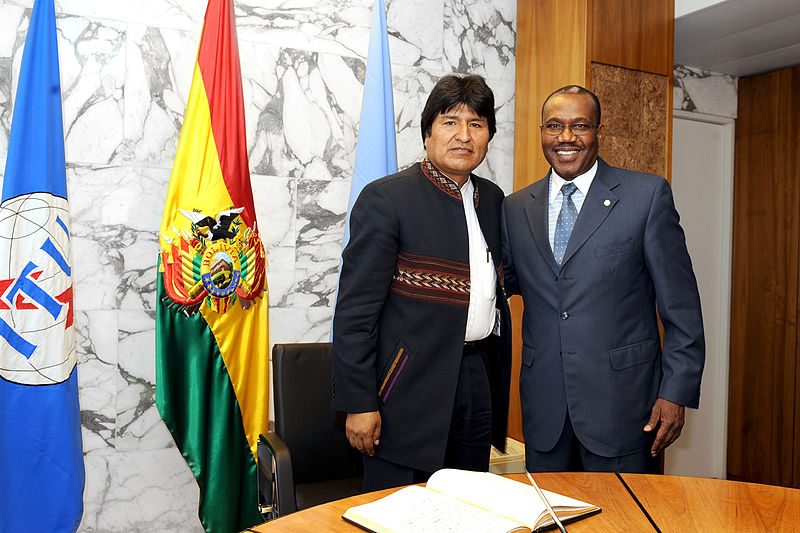Telecommunications in Bolivia includes radio, television, fixed and mobile telephones, and the Internet.
Radio and television

There are 171 AM, 73 FM and 77 shortwave radio broadcast stations in Bolivia, serving around 5.25 million radios, in 1997. In the same year, there were 48 television stations, serving 900,000 televisions.
Telephones
_03.JPG/120px-CMT_(Barcelona)_03.JPG)
According to 2005 figures, there are 646,300 main telephone lines in Bolivia and 2.421 million mobile telephones, but new subscribers to the telephone network can encounter bureaucratic difficulties. Most telephones are found in La Paz and other cities, and the use of mobile telephones is increasing rapidly in the country.
Domestic telephones use a primary trunk system, which is undergoing expansion. The system also makes use of fibre optic cables and digital microwave radio relay. For international telecommunications, the country has a satellite earth station and uses one Intelsat.
The international calling code for Bolivia is 591.
Internet

In 2006, in Bolivia, there were 20,085 Internet hosts, and 480,000 users of the Internet.
The top-level domain for Bolivia is ".bo".
Internet censorship and surveillance
There are no government restrictions on access to the Internet. On 21 October 2012, Vice President Garcia Linera stated that the government records the names of people who insult President Morales on social media sites.
The Bolivian constitution and law provide for freedom of speech and press. Although the government generally respects these rights, in at least two cases in 2012, the government used the anti-racism law to restrict both rights. Some senior government officials also verbally harassed members of the press corps. Bolivian law prohibits arbitrary interference with privacy, family, home, or correspondence and the government generally respects these prohibitions, but there have been allegations that the government does not always respect the law. On 23 October 2012, the Constitutional Court struck down the libel law that allowed for detention of one month to four years for a person found guilty of insulting, defaming, or slandering public officials.
See also

- Agency for the Development of the Information Society (ADSIB)
References

-  This article incorporates public domain material from websites or documents of the CIA World Factbook.
-  This article incorporates public domain material from websites or documents of the United States Department of State.
External links
- Agency for the Development of the Information Society (ADSIB)
- NIC Bolivia, registrar for the .bo top-level domain.